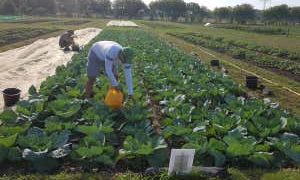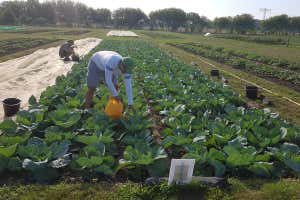Tests on cabbage plants suggest fertilisers derived from human urine and faeces are safe and could help bring down food prices.
Fertilisers derived from recycled human urine and faeces are just as safe and effective as conventional ones, according to tests on cabbage plants. Using human waste in this way could help alleviate the fertiliser shortage that is contributing to rising food prices – if people can be convinced to use them.
Nitrogen-based fertilisers are manufactured in an energy-intensive process using natural gas as a raw material. Human waste can be a good source of plant nutrients like nitrogen and phosphorus, but can also carry disease-causing pathogens and parasites, so needs to be carefully treated to make it safe. It is still used – sometimes untreated – as a fertiliser in some low-income countries, but has been largely abandoned in high-income nations.
Franziska Häfner at Agroscope in Zurich, Switzerland, and her colleagues compared cabbages grown using organic fertiliser derived from vinasse, a by-product of ethanol production, with fertilisers made from treated human urine and faeces.
The yield for cabbages grown with nitrified urine fertilisers (NUFs) was comparable to those grown with vinasse. Cabbages grown with faecal compost, or compost and NUFs together, had lower yields, but this fertiliser may increase soil carbon content in the long term, the study found.
The researchers also tested for more than 300 chemicals in the faecal compost, including pharmaceuticals, flame retardants and insect repellents. Just 6.5 per cent of these were detected, all at very low concentrations. Of the 11 pharmaceuticals detected in the compost, just two were found in the edible parts of the cabbage: the painkiller ibuprofen and the anticonvulsant and mood-stabilising drug carbamazepine. But the concentration of the latter was so low you would need to eat half a million cabbages to get a single dose.
“The products derived from recycling human urine and feces are viable and safe nitrogen fertilizers for cabbage cultivation,” Häfner said in a statement. “They gave similar yields as a conventional fertilizer product, and did not show any risk regarding transmission of pathogens or pharmaceuticals.”
A source: https://www.newscientist.com































